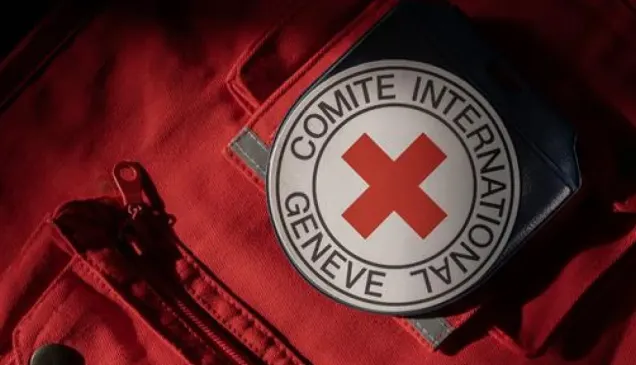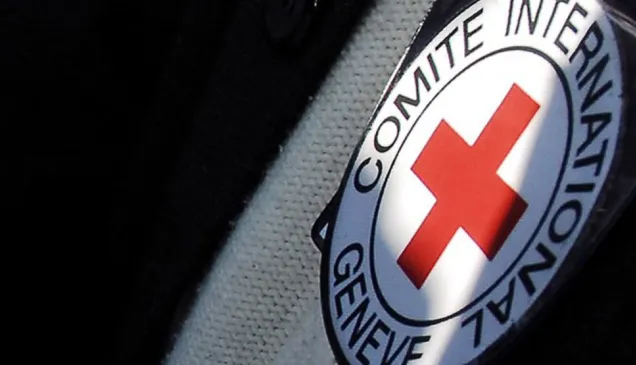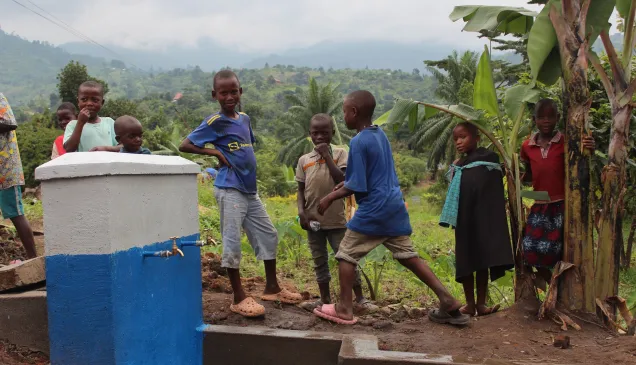Speech given by Mr Peter Maurer
President of the International Committee of the Red Cross
Mr. President,
High Commissioner,
Ladies and Gentlemen,
I am honored to address the Human Rights Council (HRC) for the third time and would like to take this opportunity to congratulate you, Mr. President, on your recent election.
The International Committee of the Red Cross (ICRC) works in the midst of conflict and violence in more than 80 States around the world. Most of the countries you will discuss during this session are countries where we witness – day after day – the effects of war on people.
We see human rights law and international humanitarian law blatantly violated. We see a manifest lack of respect for humanity and human dignity. Swift political solutions or sustainable ceasefires seem improbable - if not impossible - in most of these places.
Today, I would like to start a new dialogue aimed at improving the lives and well-being of people affected by conflict. I am convinced that together we can build momentum based on the shared values enshrined in international humanitarian law (IHL) and human rights law (IHRL) and make better use of our different, but complementary, mandates.
The evolution of conflicts and the vulnerability they entail
The reality of conflict today is a catalogue of inhumanity. Hardly a day goes by without evidence of intimidation, brutalization, torture or killing amounting to serious violations of international humanitarian law. The sexual violence against women, men and children, which is deliberately and incessantly used as a tactic of warfare in order to humiliate and dehumanize individuals, has severe repercussions on survivors' families and communities. Indeed, today's outlook is rather sobering.
The way armed conflicts are evolving – more in number, longer in duration and broader in regional impact – is generating more suffering, and increasing vulnerabilities. Violence and destruction are steadily swelling the flows of refugees and internally displaced persons. The cycle of violence, poverty and lack of development is amplified when basic infrastructure is destroyed or absent. Public services are seriously compromised in war. As a result, millions of people have no access to safe drinking water, generations of children grow up with little or no education, basic health services are unavailable and housing is at best inadequate.
This fragility is not conducive to rebuilding communities and services. Economic fragility and unsettled social or political claims seriously weaken States' capacity to ensure security and prosperity. The result is often rampant crime and other forms of organized armed violence, to which law enforcement officials may react either with passivity or the use of excessive force.
Armed conflicts show no signs of abating. Fragmentation of power and of armed groups operating with unclear command structures are increasing the asymmetrical nature of conflicts. Battlefields continue to expand into cities, combining the illegal use of weapons and the use of illegal weapons, taking a heavy toll on all segments of the population. We are already witnessing the devastating human cost of such weapons and illegal methods of warfare. There are numerous accounts of incidental and indiscriminate deaths and injuries, as well as severe damage to critical civilian infrastructure essential for the functioning of hospitals and the survival of the population.
It is no surprise that during the Security Council's recent debate on the protection of civilians in armed conflict, in January this year, we were not able to report any significant progress in the way armed conflicts are being waged, or any significant alleviation of their impact on people throughout the world.
The law
The reality on the ground does not match the normative progress reflected in the adoption of various conventions on international humanitarian law and international human rights law over the last 60 years. But I refuse to join those who believe that the law is inadequate or useless.
The political engagement and the social consensus that have proven so effective in the development of the law must be enlarged to ensure respect for the law and its implementation. I believe that the Council and its members could play an important role in helping to bridge the gap between what the law says and what is happening in reality.
While recognizing the importance of States becoming parties to international treaties and implementing their provisions at domestic level, both States and international organizations cannot be content only with respect for these obligations. It is also necessary to build the momentum required for the genuine protection of, and assistance to, vulnerable people affected by conflicts.
One way to create that momentum is to go back to the basics. We must develop a common understanding on humanity and be able to use such understanding in a contemporary, objective and consensual way. This would in turn give impetus to the effective implementation of the very laws which are based on humanity, namely international humanitarian law and international human rights law.
What does "humanity" mean?
The ICRC has long-standing, extensive experience of working in situations of armed conflict. Being close to victims, engaging with armed actors and responding to new contexts always confronts us with the tension between the principle of humanity and the evolving stark realities of conflict. It is through a renewed dialogue about humanity in real-life situations of violence that we try to find pragmatic ways to improve the lives and well-being of people. Over the decades we have thus compiled elements of a concrete meaning of humanity applicable in all circumstances:
- From the victims' viewpoint, humanity means protection against violence to life and health, and inherently excludes any form of mutilation, sexual violence, hostage taking, torture, summary execution, as well as cruel, inhumane and degrading treatment. This list, while not exhaustive, lies at the heart of international humanitarian law and points to some fundamental human rights to which there can be no derogation.
- In practical terms, it means access to health care for all the wounded and sick, without any sort of distinction. This access is in jeopardy today. The ICRC is extremely concerned about the deliberate targeting of health-care facilities and workers. Unfortunately, the consequence of such attacks is that all too often civilians living in combat zones are deprived of medical assistance. The ICRC is also concerned about restrictions placed on the treatment of the wounded and sick in the field and about overemphasis of the risk that rehabilitated combatants might engage in fighting again. Failure to respect the neutral character of health care is tantamount to discrimination, a violation of international humanitarian law and a breach of medical ethics. Humanity requires that no one be excluded, not even the enemy.
- Humanity also imposes limits on the excessive use of violence. In international humanitarian law, the principles of precaution, proportionality and distinction preclude the use of any weapons that make it impossible to distinguish between civilians and combatants and of weapons whose effects are considered abhorrent or contrary to the public conscience. Chemical and biological weapons, as well as anti-personnel mines, fall into these categories.
- Humanity means treatment respecting human dignity in all circumstances, especially that of captured enemies and detainees in general.
Individuals have the right to be protected against abuse, persecution and arbitrariness. The right to be treated humanely is common to both IHL and IHRL. It is our common duty to make use of that convergence and ensure that no one is left without protection.
How to move successfully from principle to action?
Part of the challenge facing a new dialogue on humanity lies in ensuring that States recognize their responsibility for its implementation in law and in practice. Making a real difference to people's lives and well-being in many of the conflict situations we see today will not be an easy task. Humanity is being openly challenged by a mediatized display of the inhumane treatment of prisoners and hostages. This is not a new phenomenon, but part of a scheme of warfare which we have been witnessing for decades. We must respond decisively to the culture of unlimited violence, but without stigmatization.
Turning humanity into real action calls for genuine political commitment. We need to go beyond modifying the law and spread knowledge of the rules. We have to foster an environment conducive to respect for the lives and dignity of people affected by armed conflict and other situations of violence. We need to integrate the relevant norms into operational frameworks.
The ICRC believes that this can be achieved only through a continued process of dialogue with all weapon bearers – be they armies, security forces, or non-State armed groups – and with the support and active participation of the people affected. We reach out to beneficiaries, local communities and authorities, as well as to experts in other bodies of law, including Islamic law and in other legal and value systems.
I am committed to working with you, for the respect of humanity. To do this, we need a buy-in at local, regional and global levels of stakeholders with political, religious, social or cultural influence. This means working with those who have a direct and an indirect stake in the violence.
This dialogue requires a willingness on the part of authorities to deploy the necessary efforts and means to monitor, ensure compliance and put an end to violations when they occur. It is your responsibility to develop national, local and international capacity to examine the causes and consequences of violence with a view to preventing its re-occurrence. It is up to you to put in place accountability mechanisms. As such the work of the mechanisms and procedures intended to defend and promote human rights and gather information on situations of concern – amongst which stands the Human Rights Council – should be recognised.
As far as international humanitarian law is concerned, States' continued participation in the efforts of Switzerland and the ICRC to create an effective compliance mechanism resonate with this commitment.
Neutral, impartial and independent humanitarian organizations, such as the ICRC, and our work to protect and assist people cannot relieve you of those responsibilities. I believe that the above-mentioned elements can provide a solid basis for the greater long-term individual and collective stability which are critical to the realisation of your broader agenda of achieving universal respect for the protection of all human rights and fundamental freedoms, without any kind of distinction.
Mitigating efforts and sharing a space of humanity
In the midst of violence, respect for humanity means investing in steps to mitigate the impact of armed conflict on people's lives and to restore some form of normalcy. A thorough assessment of victims' needs is therefore of key importance.
During a recent field mission, I travelled to a number of countries where areas of dialogue, based on the law governing relations between warring parties, are expanding substantially owing to the delivery of aid and assistance. In some cases, the humanitarian action of a neutral, impartial and independent intermediary has helped to open doors or maintain contact and negotiation between parties. The ICRC's diplomacy of access is based on a continual process of negotiation to obtain the parties' consent to its presence in conflict-ridden areas, its proximity to the people and communities affected by the fighting and to the carrying out of humanitarian operations.
I am convinced that we can continue to build on these shared spaces of humanity and resist the politicization of relief efforts. The process may be tedious, but the result is worth the effort.
During my recent field visit to Barzeh in Syria in November 2014, I went to a front-line clinic that the ICRC is repairing. The clinic serves people on all sides and provides a respite and some normalcy to people exhausted after four years of conflict which has taken a huge human toll. The delivery of medical care is rendered possible by a fragile truce respected by all parties.
In Africa I was moved by our experience with the Maisons d'écoute, community associations supported by the ICRC, where victims can seek immediate help and share their experiences frankly and confidentially in a safe environment and with people they trust. Changes in local attitudes are noticeable. Less stigmatization makes victims more willing to seek assistance. Such spaces which are strongly grounded in a community-based approach assist victims by identifying and supporting their personal resources, thus enabling them to cope better with difficulties and, eventually, to live - not just survive - again in a community.
There are countless examples of such shared spaces of humanity, even in the heat of battle: they range from private taxi drivers bringing wounded from all sides to hospitals, to decent and humane conditions of detention for the enemy.
We do not accept the status quo when facing excessive violence. Neither can you. Investing in humanity is an invaluable choice that you must make, that you will be asked to make.
I am committed to working with you in order to further our dialogue on what humanity entails, as it is one means of furthering the effective implementation of the law.
The next International Conference of the Red Cross and Red Crescent will be held at the end of this year and it will mark the 50th anniversary of the Fundamental Principles of the Movement. I look forward to seeing you all there. The months leading up to this will be an excellent opportunity for the ICRC, the Council and its members to further explore the positive complementarity between international humanitarian law and international human rights law on issues such as sexual violence, health care or, more generally, the protection of populations affected by conflict, to name but a few.
I wish the 28th session of the Human Rights Council every success in its work.



